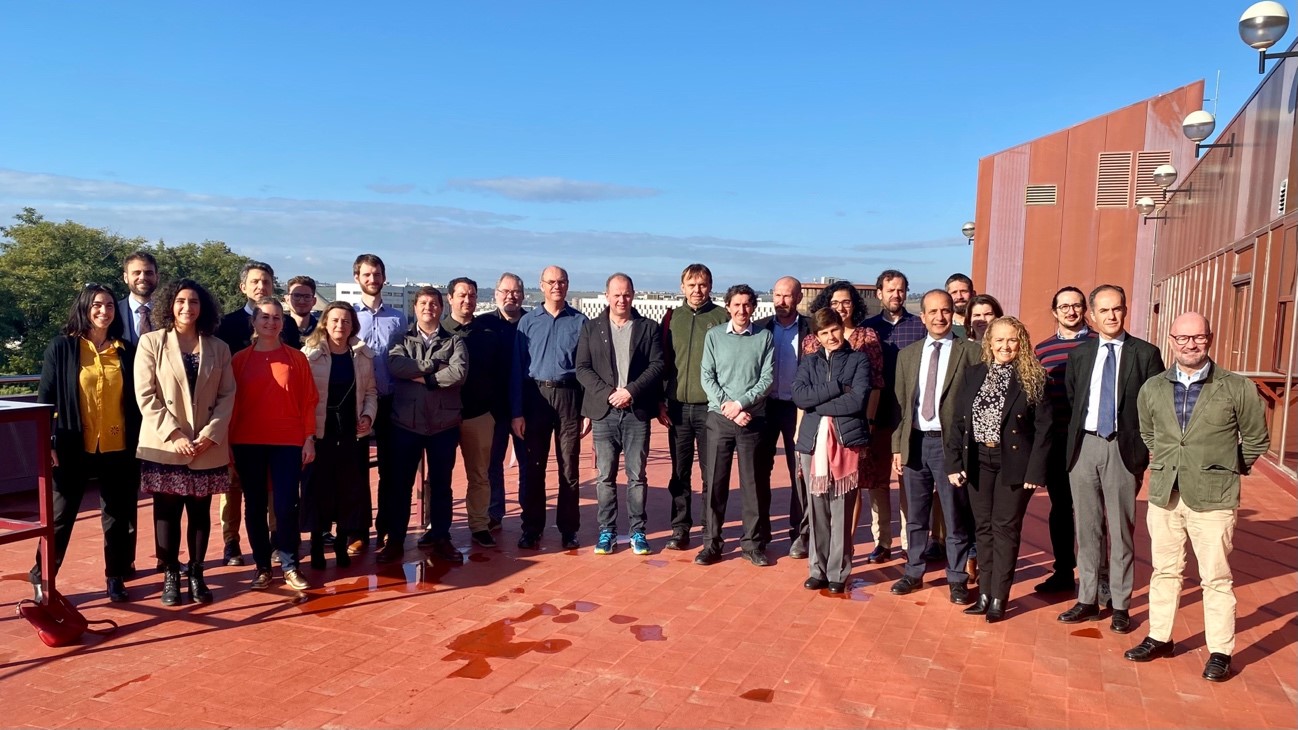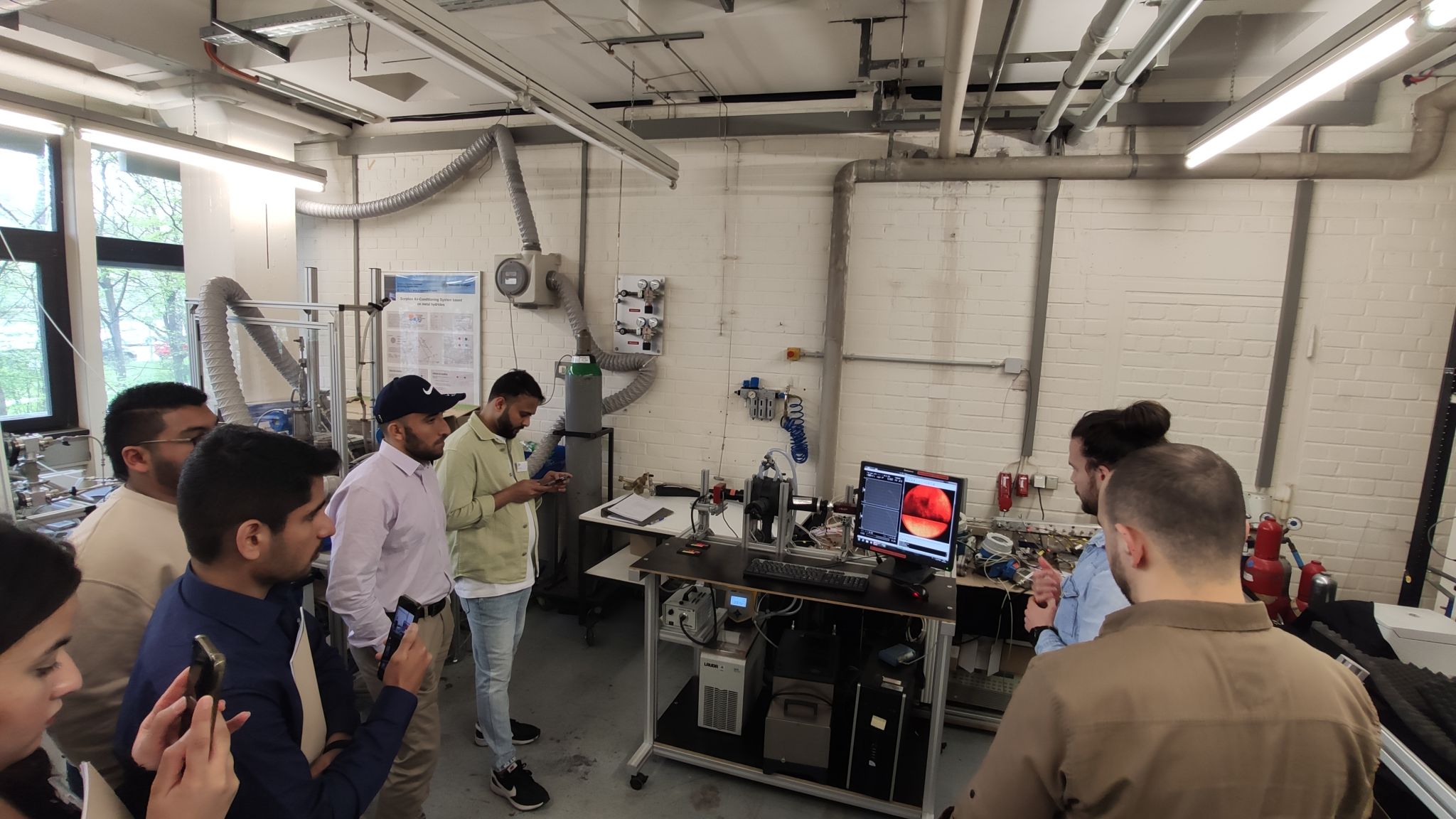The recent three-day workshop, "Developing Technologies Through R&D: IPR Management, Innovation, Entrepreneurship, Funding" held at…

ISOP officially launched: kick-off meeting successfully held at University of Seville on February 8th and 9th 2023
Innovation in Supercritical Carbon Dioxide Power Generation Systems – ISOP is an action funded by the European Union through the Marie-Sklodowska-Curie subprogramme (MSCA) of Horizon Europe, under Grant Agreement No. 101073266. The consortium is comprised of nine industrial beneficiaries, six academic beneficiaries, one associated partner whose action is funded by United Kingdom Research and Innovation (UKRI) and five additional associated partners supporting secondments of the doctoral candidates (see below for details).
The project is coordinated by Prof. David T. Sánchez Martínez, University of Seville (Spain), and has a total duration of forty eight months, from January 2023 to December 2026. The total budget is M4.45 €, of which M3.84 € are funded by the European Commission and M0.61 € are funded by UKRI.
The aim of this four-year work programme is to undertake cutting edge multidisciplinary research and development to make a step change in understanding and advancing Supercritical CO2 based power generation systems’ technology. This will enable a step change in the role played by power and heat cycles to become major contributors to achieving the 2050 zero emissions targets. ISOP will achieve this goal while providing specialised training for 17 doctoral researchers to help establish the backbone of an important industry.
The technical objectives of this research are:
- Develop advanced models and design tools that enable the optimal integration of sCO₂ power systems components for various thermal energy sources and end use applications
- Develop accurate prediction tools for the simulation of transient operation of sCO₂ power cycles and investigate innovative concepts of control and optimisation of operation
- Develop innovative methods to enhance aerodynamic and mechanical performance, reliability, and operability of key system components
- Develop advanced modelling and experimental methods that enable selection and development of materials, coatings and manufacturing techniques
The project aims to contribute to the EU agenda on European Research Area by training “a new generation of creative, entrepreneurial and innovative early-stage researchers”, who can face future challenges and to “convert knowledge and ideas into products and services for economic and social benefit”. In addition, support to and compliance with the United Nation’s Sustainable Development Goals will be at the heart of the training of the doctoral candidates and the scientific and economic outcomes of this research.
| ISOP partners | |
| Beneficiaries (country) | Affiliation |
| University of Seville (Spain) | Academia |
| Instituto Superior Tecnico (Portugal) | Academia |
| University of Stuttgart (Germany) | Academia |
| Baker-Hughes (Italy) | Industry |
| Fives Cryo (France) | Industry |
| European Turbine Network (Belgium) | Industry |
| Empresarios Agrupados Internacional (Spain) | Industry |
| Advanced Center for Aerospace Technologies (Spain) | Industry |
| SoftInWay (Switzerland) | Industry |
| Technical University Wien (Austria) | Academia |
| Técnicas Reunidas (Spain) | Industry |
| Czech Technical University in Prague (Czech Republic) | Academia |
| Politecnico di Milano (Italy) | Academia |
| Siemens Energy (Germany) | Industry |
| RPOW Consulting (Spain) | Industry |
| Associated Partners (country) | |
| City, University of London (United Kingdom) | Academia |
| INERCO (Spain) | Industry |
| EASY Energy (Switzerland) | Industry |
| Rosswag (Germany) | Industry |
| Doosan-Skoda Power (Czech Republic) | Industry |
| Azzero CO₂ (Italy) | Industry |
| Plataforma Solar de Almería (Spain) | R&D |
The Project was officially launched at University of Seville on the 8th and 9th of February 2023. The kick-off meeting was attended by all beneficiaries and two associated partners (City, University of London, and Inerco). The agenda included roundtable presentations of all the beneficiaries -introducing their respective skills and competences-, overview of the general rules and procedures of the MSCA-DN-ID type of actions, and discussions about the implementation of technical work packages. Special attention was paid to recruitment and the associated training programme, since this is the cornerstones of any MSCA action.
In spite of some showers on the 8th, Thursday was a typical sunny, springish day in Seville representing the bright future ahead of everyone involved in this initiative. A training event is scheduled for Q4 this year; more info will be share on social media.

Roundtable presentation of beneficiaries. Right to left, starting from the front row: Andrea Pagini (Baker Hughes), Giordana Marcon (Baker Hughes), Lorenzo Cosi (Baker Hughes), Markus Haider (Technical University of Wien), Sergio González López (Advanced Centre for Aerospace Technologies), Carmen Jiménez Borja (Técnicas Reunidas), Soledad López-Postiglione (Empresarios Agrupados Internacional), Luis Javier García de Rozas (Empresarios Agrupados Internacional), Centre row: Francesco Crespi (University of Seville), Giacomo Persico (Politecnico di Milano), Tala El Samad (City University of London), Lourdes García-Rodríguez (University of Seville), César Martín Montalvo (RPOW Consulting), Ángel Martínez Quesada (RPOW Consulting), Fatima Montemor (Instituto Superior Técnico). Back row: Pablo Rodríguez de Arriba (University of Seville), Jan Syblik (Czech Technical University in Prague), Jitka Spolcova (European Turbine Network), Christer Bjorqvist (European Turbine Network), Ernesto Simón Camacho (Técnicas Reunidas), Sarah Tioual-Demange (Fives Cryo), Joerg Starflinger (University of Stuttgart)

Group picture at the terrace, School of Engineering (University of Seville). Right to left: Luis Javier García de Rozas (Empresarios Agrupados Internacional), David Sánchez-Martínez (University of Seville), Francesco Crespi (University of Seville), Soledad López-Postiglione (Empresarios Agrupados Internacional), Carmen Jiménez Borja (Técnicas Reunidas), José Antonio Peregrín (Inerco), Abdulnaser Sayma (City, University of London), Ernesto Simón Camacho (Técnicas Reunidas), Sarah Tioual-Demange (Fives Cryo), Fatima Montemor (Instituto Superior Técnico), Andrea Pagini (Baker Hughes), Giacomo Persico (Politecnico di Milano), Markus Haider (Technical University of Wien), Stefan Glos (Siemens Energy), Stefan Weihe (University of Stuttgart), Joerg Starflinger (University of Stuttgart), César Martín Montalvo (RPOW Consulting), Ángel Martínez Quesada (RPOW Consulting), Jan Syblik (Czech Technical University in Prague), ), Lourdes García-Rodríguez (University of Seville), Pablo Rodríguez de Arriba (University of Seville), Jitka Spolcova (European Turbine Network), Lorenzo Cosi (Baker Hughes), Tala El Samad (City University of London), Sergio González López (Advanced Centre for Aerospace Technologies), Giordana Marcon (Baker Hughes).




Esta entrada tiene 0 comentarios